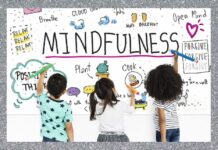Feel Hopeless About Reforming a Broken System? Incremental Change Is Still Change
Despite all our efforts, it seems that a radical transformation of the system has not yet occurred. However, incremental changes can directly improve the lives of thousands.
Improving Therapy Outcomes: The Case for Deliberate Practice
With Deliberate Practice, I doubled the number of sessions I had with my clients, cut the amount of unplanned dropouts in half, and improved the number who experienced clinical change.
Growing Good Mental Health with Choice Theory
On those days when I’m experiencing discomfort, anger or frustration, I ask myself: Which need is not being adequately met and which is driving my discontent?
6 Good Things That Happened When I Stopped Believing in ‘Mental Health’
The pursuit of mental health had made me mad. After 12 years, I quit Prozac and found a new psychoanalytic therapist. Life changed, almost overnight.
Are We Witnessing the Emergence of a New Paradigm?
Increasing numbers of people are finding the perspective that sees mental distress as an isolated, static category, fixed within a biological predisposition or malfunction, to be insufficient.
Why Detox Facilities and Psych Wards Are Not the Place to Come Off Psychiatric...
In online communities, patients learn their strange symptoms may be due to the medications they are taking, and are offered solutions that provide hope.
The “S” Word: How the Culture of Fear Has Failed Youth in Crises
I learned at a young age that my suicidal thoughts and feelings would be met with panic and punishment from adults.
From the Health Minister Down, Nobody Is Seriously Interested in the Quality Control of...
The ultimate metric is whether psychological treatment makes a real-world difference to client’s lives. But the data cannot answer this key question.
The Problem of High Functioning Anxiety
We have accepted that the busier we keep ourselves, the happier we can expect our lives to be. "Acceptable behavior" is defined by increased productivity across all aspects of life.
Re-humanising Mental Health Systems: A Discussion with Jaakko Seikkula on the Open Dialogue Approach
Clinical psychologist, researcher, and professor Jaakko Seikkula, along with Markku Sutela, created the Open Dialogue approach to acute crises in Finland.
A New-Old Way of Coping with Grief
"How to Grieve" is a Renaissance recreation of a lost text from ancient Rome by Cicero, and it’s meant for a wide audience. It's packed with talk-therapy strategies for coping with grief.
The Spravato Controversy: A Row Over the Drug’s Efficacy Compels a Reassessment of...
The UK's drug regulator rejected Janssen's esketamine nasal spray. Why did the US FDA approve it?
The Answers Are in Our Weak Spots
When looking at your own weak spots as a therapist, it would be a safe bet to first consider how you can improve your skills in developing a stronger alliance.
Grief, Intense Feelings, and Pathologization: Can We Conceive a Different Approach?
We still try to shove every kind of emotion into a neatly organized box, give it a label, maybe even an accompanying medicine to make it neat and predictable.
Mental Health & Our Schools, Part 2
Schools are rolling out programs and services intended to safeguard students’ emotional well-being. They are full of potential—and pitfalls.
20 Concrete Steps to Achieving System Change
I offer the following 20 suggestions for advocates who want to get something done and not just vent their quite justifiable criticisms of the mental health system.
An Illness, or Risky Experimentation?
Questioning is what I did, but once I started questioning so much of what I had learned and of what my identity had been, it wasn’t obvious to me where I should stop.
A Return to Dignity from Psychiatric and Childhood Abuse
Homebirth was a reflection of how the mental health system should work: Informed person-centered care while respecting your agency.
Why We Urgently Need New Approaches to Mental Health
Emotions function like a guidepost to what we need. But if we are not aware this, we cannot understand what they are trying to convey.
Meaningless Distractibility, or Meaningful Mind-Wandering?
What do we lose when we view boredom and curiosity as "symptoms" of ADHD? It can rob us of intuitions that crucial life changes desperately need to be made.
Understanding the Limits of the Beneficial Effect of Antidepressants Reported in the Meta-analysis by...
Stone, M. B., Yaseen, Z. S., Miller, B. J., Richardville, K., Kalaria, S. N., & Kirsch, I. (2022). Response to acute monotherapy for major...
The Psychiatrist’s Dilemma: In Defense of Placebo Psychiatry
Telling stories they know are or may be untrue has become standard practice in psychiatry. It is a small step to set aside the need to provide truly informed consent.
“Beware, Scientology Related”: How ADHD Experts Silence Criticism
We do not belong to the scientology movement, but this false accusation triggered an email correspondence that exposed the problematic happenings usually behind closed academic curtains.
#RestoreTheirRights: An Update on Guardianship Action
It’s time to change the conversation around guardianship. The question is not “When do we remove someone’s rights?” but “How can we best support them?”
The Culture Is the Poison: Why Psychedelics Are Dangerous Medicine in a Neoliberal Society
Extraction of psychedelics from the ritual process has dissociated them from community, connectedness, and responsibility, which used to define psychedelic drug use.

































